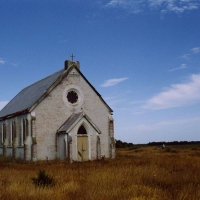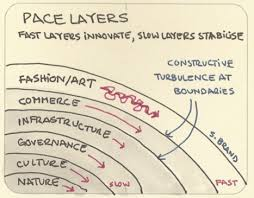Organizational Structure and Governance of OSArch
I am excited about this community and the software/conversations/processes that are occurring and I would like to see it develop into a form that can survive and support the Open Source Architecture community for a long time. This is a renaming/continuation of my poorly named Vision thread and closely related the Mission thread
I have been using OS software for a long time but do not have any experience with running any open source initiatives so please forgive my naivety and stating the obvious and correct any aspect of this that appears off to you. I do have experience founding, owing, and running a business and being on a number of boards and that is where some of this thinking is coming from. I have also been reading Working In Public by by Nadia Eghbal .
As is described in the book there are many financial and social pressures that make open source projects hard to maintain for a long time periods (not that it is easy to keep a closed source project going either). A quote I saw recently described it like this:
Running a successful open source project is just Good Will Hunting in reverse, where you start out as a respected genius and end up being a janitor who gets into fights.
">Link
In order to counteract this and other open source struggles it seems like it would be great to have an OSArch organization or foundation that provides:
1. Organizational and Legal support
2. Coordination on initiatives
3. Collective clout to influence industry standards
4. Legal structure for receiving grants and funding
5. Collective decision making
6. etc.
As I described in the Vision thread looking around it seemed like the OSGeo foundation (FAQ)provides many of those functions for the Open Source Geospatial community and could be a good resource and template.
Some of the things it does is:
- Put on a number of conferences a year
- Incubate software to meet the OSGeo standards
- Coordinate educational resources
- Provide a software bundle of the OS Geo-spatial software stack
I expect that many aspects of an endeavor such as creating a foundation would be difficult and contentious but I am exited to have the conversation.









Comments
Great to start this part of the discussion @baswein , thanks. I've been wondering if we could have a discussion/presentation from someone who has the experience we lack. OSgeo is certainly one group whose thoughts on this I would love to hear. Also the Software Conservancy, Document Foundation, FSF and others. Does anyone have any relevant contacts?
How many people even want to spend time working on these organizational issues? My experience is that very few people find it interesting even though everyone agrees it's important. I think it's fascinating designing an organisational structure that matches its aims.
I too find organizational structure fascinating and am excited to work on it. I think a discussion/presentation from someone with experience would be great.
This is zoomed in way more than your topic, but kind of related. There are some people (myself included) here, who would like to help with development, have a little python knowledge, but no idea how to start. Would someone be interested in a position of a python kindergarden teacher?
Showing newbies how do you go from simple python scripting to fixing bugs in a blender add-on? Right now it looks like the whole thing is more or less carried by a handful of people and can very quickly collapse again, if for any reason some of them drop out. I know it's not a nice job, but in the long run I believe it would go a long way in securing a continuity of this movement.
(I spent more than ten years in the scout organisation, which has obviously nothing to do with open source software, but it is where my idea of a working structure of a volunteer organisation comes from. The new kids mostly only receive knowledge and support but slowly, through the hierarchy, become teachers themselves and by the time they do, a lot of them feel like they would like to give back to the community for the stuff they learned.)
This thread is very important. Thank you for writing about it. The OSGeo standards are amazing - the most important of which to me is the bus factor. Right now, IfcOpenShell has a bus factor of 1-2. The BlenderBIM Add-on has a bus factor of 1. FreeCAD is much more mature, having a bus factor of maybe 15 (guessing here - could be totally wrong - in the past month, 23 authors contributed, but not all authors are core devs). The OSArch servers are inaccessible by everyone but me, so that's a bus factor of 1. These problems need to be resolved.
@JanF happy to help - try this as a starting point: https://wiki.osarch.org/index.php?title=IfcOpenShell_code_examples - also happy to have screenshares, 1-on-1 online calls, etc. Also, the ##architect channel on Freenode has a bunch of us online 24/7 across a few timezones.
Using the software - trying to understand intimately what every button does (despite the lack of documentation) - finding bugs, and if the bug is simple, you can volunteer to attempt to fix it yourself, and the devs can guide you on the way. Ask lots of questions :) The annoying thing about contributing to this field is that there are three deep fields to balance simultaneously: you have to learn the platform (Blender / FreeCAD / Python / C++ / etc), as well as OpenBIM (IFC, BCF, OpenCDE, bsDD), and of course, perhaps most importantly: the discipline itself (architectural, MEP, structural, landscape, etc).
@Cyril has made a new post about getting started scripting for openbim projects. Maybe the discussion on resources for getting started can continue there.
https://community.osarch.org/discussion/188/openbim-programming-video-crash-course-and-tutorials#latest
... and we can use this thread for governance discussions.
I am also interested in this topic and watching a presentation about it would be a good start
A reminder that there is a meetup this weekend - and to add your details to this spreadsheet if you make it - sometimes it is useful to discuss these things over voice: https://community.osarch.org/discussion/comment/2306/#Comment_2306
@Moult, perhaps an introductory video (to add to the technical demo series) on ''Contributing to BlenderBIM development 101'' assuming a very basic understanding of Python and the Blender Python API would help?
Please use the appropriate thread for that discussion:
https://community.osarch.org/discussion/188/openbim-programming-video-crash-course-and-tutorials#latest
@bruno_perdigao what topic were you interested in? Governance or scripting? This thread is about governance...
@baswein i'm starting a dialogue with OSgeo on their discussion list, let's see where that goes. My email should show up here soon: https://lists.osgeo.org/pipermail/discuss/2020-September/thread.html
I just want to caution about over-structuring this community. I think structure is important, but whatfor? I think you need structure when you have a clear objective. As it is right now, I feel OSArch is just a "community", it does not need a rigid structure, because it doesn't create a defined "product", it's just a collection of people.
Now, if you are talking about the BlenderBIM-Addon, or FreeCAD, or IfcOpenShell, or LibreCAD, etc., that's a different matter. These are specific "products", and thus you need a structure to pursue the general goal of "improving the software". So, I feel this thread is confusing the OSArch umbrella community with the BlenderBIM Addon. OSArch is just a community, while BlenderBIM is a product; do we need organization to make decisions on the OSArch community itself, or for the specific development of BlenderBIM, IfcOpenShell, FreeCAD, etc?
About the software; authors of all these tools normally have their own websites, forums, code repositories, etc., where they organize themselves. So if you want to contribute to these software projects, you need to visit their own websites and join their discussions. For example, @JanF wants to "contribute", but contribute to what? To BlenderBIM? This is the first thing that people need to define. If you want to contribute to BlenderBIM, then go to GitHub and look at its code; if you want to contribute to FreeCAD, then visit its forum, etc.
@duncan I was talking about governance
OSArch is not just a collection of people. It's a collection of people with disparate skills and experience, trying to organize around common goals for the purpose of solving complex problems. These complex problems will not be solved if the community is not effectively organized.
Organizing == Structure.
Agreed that the structure does not have to be rigid, but structure it will be nonetheless. Questions about structure are coming up because people are looking for parameters to guide their participation and it's a useful thing to have this well delineated like you have already attempted @vocx . At the very least it will make it easier to funnel different energies in the appropriate direction and reduce confusion. Deciding not to have a rigid structure itself is a way of structuring a community, but then we will have to ask next what it means not to have a rigid structure at a granular level.
Mining the bullet points from @baswein's first post, and proceeding along the lines of the preceding vision thread, my suggestions are as follows:
For these first five talking points.......
1. Organizational and Legal support
2. Coordination on initiatives
3. Collective clout to influence industry standards
4. Legal structure for receiving grants and funding:
5. Collective decision making
...........I suggest organizing as a cooperative rather than a foundation. As a cooperative, every member has one vote and can participate directly in decision making in a non hierarchical, yet effective manner. I've seen this work nicely for Hackspaces for example, where they are able to take donations, manage equipment and their building(s), coordinate elections and generally coordinate decision making for their community in a participatory manner. Useful templates for how this may work in practice can be found in Holacracy and the Loomio Cooperative Handbook, using tools like Glassfrog and Loomio's open source software for organizing and collaborating online. A caveat here though that those examples are not to be taken as one size fits all solutions but as examples of available systems out there that address those needs. I believe an operational and organizational structure along those lines will take care of those five points above and the four activity areas OSArch can organize around as listed (adapted from baswein's post) below. If this is adopted as a starting point, the next step would then be to discuss each point and build consensus on specifics of what activities OSArch should be engaged in and how:
6. Put on periodical conferences / meetups
7. Incubate software to meet the OSArch standards
8. Coordinate educational resources
9. Facilitate interoperability between software in the OSArch ecosystem
Sorting out structure and governance is clearly a rabbit hole, but it's not one that can't be carefully navigated.
@vocx I understand what you mean, but I see it differently. In my view, what you are describing was exactly the state of things before this community appeared.
There is however a reason why it appeared - that we want to have a coordinated development. I actually think there is a central goal of this community - to govern a set of open source BIM tools that work together (that is what BIM is about isn't it). It is rather broad and complex and that is why we need to organize it - the need for organizing it is the reason this community exists.
I do not want to join one of those products and help developing it. I want to see what we decide the best way of reaching our goal is and help there. Yes, right now I am really into BlenderBIM. But if the community decides Freecad suits the overall purpose better, I'm happy to focus on that.
@JanF @vocx It's easy to agree with both of You.. Some thoughts....
This general discussion page contains a lot of good ideas, thoughts, statements, tips and tricks regarding a broad specter.
Much of what is written here could be extracted and organized in OSArch wiki.
Products like BlenderBIM and Freecad both need improvement regarding documentation, Freecad has a reasonably good wiki, BlenderBIM needs user documentation regarding most aspects.
Feel the need for wiki documentation on BlenderBIM. Should this be part of the OSArch wiki, or have a separate wiki?
Technically it should be possible to integrate all, BIM, general OSArch workflow, standards, products and so on in same OSArch wiki. This will probably need some restructuring and organization of the wiki.
Damn, so annoyed I didn't get a chance to read this post before the monthly meetup today. We had a chat about these things. But I'm not going to go into that discussion as all the points we discussed have been mentioned since I was in this thread last time. I haven't heard from OSGeo mailing list ... because I wrote from the wrong address.
@DADA_universe fantastic summary - exactly the type of discussion we need to be having.
Having a legal structure, implies going into legal affairs? who is qualified?
OsArch can have a Roof-Organisation. To have a common voice to acquire fundings is a good thing. It will of course mean that 2 or 4 of us will have more to say..and decide. But they will for the legal part of OsArch.. the homepage, the wiki, the exchange does not have to be related.. this should keep its actual freedom. Organisation means work input. On 'Freiwilligkeitsbasis' (own volunteering) until now. Each community lives from this..that is good. Nevertheless some do more, they may get to some point some reward (also financial, once the organisation can afford it). The Organisation should run parallely, in a separate Chapter of OsArch..
The other way, is to have librapay or tipee or similar for your own (FreeCAD way for now, I believe). This could apply to the different tools (BlenderBIM and co). And the OsArch tops all of those tools, to gather under a same roof a Codex, a Strategy for the acquisition and distribution of fundings. (Even on top of the Blender Foundation :-), well Blender is more than Arch.. so a kind of FSF for Architectur-related topics, gathering the interests (or some of the intersets) of OSGeo, OpenStudio, QGIS in fact all of our OpenSource AEC List? ) Difficult to set the purpose limits..
my 2 cents.
Lukas
@lukas you may be right in many of your thoughts, but I think we need input from organisations trying to do something similar to us and how they are organised.
OSGeo have their AGM on the 10th. Who has time to watch? I'll try and be there.
https://wiki.osgeo.org/wiki/Annual_General_Meeting_2020
I'm understanding OSArch a little better now... I fell in here because of BlenderBIM, now I see it's scope better.
If you don't mind the basic question what software products have stated they want to be under the OSArch umbrella already?
BlenderBIM? FreeCAD? More?
(This is related to the discussion we had in the meeting Duncan, and the post I compromised I'll make on the site thread.)
@JQL the thing is that there is no official umbrella. That's one of the things some of us want to look into. The structure of OSArch at the moment is nothing more than what you see on this discussion board and the wiki. But I'm firmly of the opinion that we should gradually move towards some form of alignment around goals and workflows - that requires organization and an idea of which projects are committed to working on a shared goal. This is all what OSGeo seems to be doing so well, so I'm trying to learn more about their organization.
@duncan I did manage to catch a large portion of OSGEO's AGM. Nothing too exciting mostly bureaucratic housekeeping as it should be. Their goals at least seem to align with what I imagine OSArch would be interested in. From my limited understanding their structure also seems functional if fairly traditional. I think it is a large number of voting members that vote in new members and board members. https://longnow.org/seminars/02015/jan/27/pace-layers-thinking/
https://longnow.org/seminars/02015/jan/27/pace-layers-thinking/
@DADA_universe I looked into Holacracy and Loomio both seem promising and exciting and I think it could be an empowering model.
I am sure that the more traditional structures would have the traditional challenges and benefits and the new structures would have new challenges and benefits.
It makes me wonder if Stewart Brand's pace layers has some use here. 4
The OSArch umbrella could operate at a slower pace and focus on decisions and support of slower structural items and therefor may need a different decision making structure than the face pace items such as the OSArch forum. Holacracy seems to offer that granularity and modularity. Wish I had more time to think and work on this stuff.
I've started a letter I'd like to send out to some group, it's here:
https://wiki.osarch.org/index.php?title=User:Duncan/Sandbox/Open_Letter
Feel free to edit the text and if you're willing to join a meeting with them for a discussion then feel free to add your name
Please also add a list of organizations you think we should try and talk to. Of course we should first spend some time reading about their structure and governance, so we'll need to divide our time up a bit and take on some tasks.
So since we seem to be basically a form of sociocracy and I feel like thing are getting pretty busy here, I propose organizing the community into circles with their respective goals as wiki states:
https://en.wikipedia.org/wiki/Sociocracy#Organizing_in_circles_(principle_2)
1. Development - building a viable alternative to proprietary software
2. Education - building a curriculum on OS BIM/IFC/??
3. Presentation - building and maintaining Wiki and homepage
4. Funding and organisation - building and maintaining the structure of the community
5. ??
I think it could help to spread the load so that @Moult and @duncan don't have to run all over the place organizing everything.
@JanF definitely! I think a good paradigm to copy would be that of a "project". E.g. in the Gentoo community, there are many projects, and each project is run by a "lead" and has members. See this example https://wiki.gentoo.org/wiki/Project:Gentoo
The closest thing we have at the moment is this page: https://wiki.osarch.org/index.php?title=OSArch_Supporters and the "Activity" column. The more people that add themselves, the stronger case we have to call ourselves an organisation and get more weight in the industry.
The best way to lead a project is to... just do it! :) We can document the circles in the wiki as they evolve.
As @Moult says, if we all encourage relevant people to add themselves to the https://wiki.osarch.org/index.php?title=OSArch_Supporters and write what they're doing we can start to organise around what people are willing and interested in doing. I've changed the 'activity' column to 'Happy to help with' so people can also write what they're willing to work on. I'd definitely keep an eye on what people write and then we might be able to find groups of people interested in the same topic and help them get together and start something.
https://wiki.osarch.org/index.php?title=Funding_sources
I have now made a page dedicated to listing sources of funding. Not individual funding, but grants of different types. I had a long talk with @KasperMiller about this and the problem is not so much if there is funding out there - there is funding. But it takes dedicated work to apply for it and wade through the bureaucracy.
@KasperMiller can you add some sources and examples for the Horizons project (also check the dates for that project). Don't spend years on the page, just quick stuff with links.
@everyone - please add sources of funding you've heard about.
I'm going to stick neck out and say we should start talking to https://opencollective.com/opensource about setting something up. As far as I can tell they can help us with a lot of the admin and transparency and structure while we grow and maybe eventually become strong enough that we can be fully independent. At the moment when I look at how many people are willing to spend time and energy on organization work I don't see any other realistic option.
So please read about them and if you don't have some important objection then I think we should go further looking into how it works. I think we need at least three people who are committed to going into the details of this so we can move forward. I am happy to be one of those people but will not do it alone as this is both unsustainable and undemocratic. This little group could then make a presentation of the facts and call everyone serious about this group for an opinion.
I have previously talked with Dion and others about using LiberaPay and they have a good solution but they themselves suggest looking at opencollective for larger projects that need to provide financial information and transparency. Also my own bank has given me problems transfering money to LiberaPay. So they are clearly part of the solution but are not enough alone.
Thanks @duncan for looking into this. I think this is a good option to explore. I can help.
Go for it!
@Cyril commented in the thread Open Source Design collective but I will reply here.
@Cyril you are totally right that this any many other things could be on a list of issues to consider. But without people who have to to look into all these things we still need to do something. My thought is that Open Source Collective could be a good place to start. Please add your thought here and anything concrete to https://wiki.osarch.org/index.php?title=Funding_sources#Charity_or_Foundation to it doesn't get lost in this conversation which will be on for a long time. I'm just not sure we should wait until all our questions are answered when an apparently good solution is so easy. I've added some of your thoughts to that text.
I have earlier argued against trying to hurry up. That was because I thought it would be a whole nightmare load of work. But with the way Open Collective and Open Source Collective are organized this problem is much smaller. As it stands we have no way to begin applying for and accepting funds for our work and on behalf of others. And as @Moult s recent comment in chat shows (his was offered 1000USD but only to a 501c US registered charity) we might benefit from having something set up soon.
But again, I'm not planning to make any moves before we are a few more people willing to spend some time looking into this and managing it. Your comments @Cyril help by bringing some important issues to light. For now @theoryshaw has stepped forward. That makes us two. I suggest we need a few more people.
I've added OpenDreamKit as example of Horizon 2020 funding open source software tools under category Research Infrastructure, which I found through a LinkedIn post by @c4rlosdias regarding: https://github.com/K3D-tools/K3D-jupyter